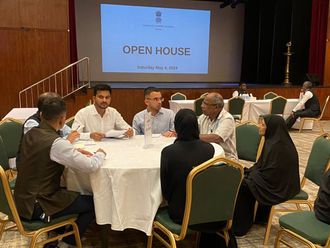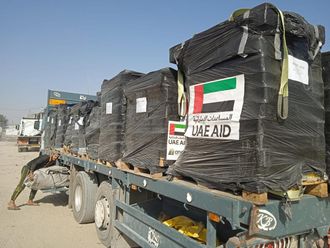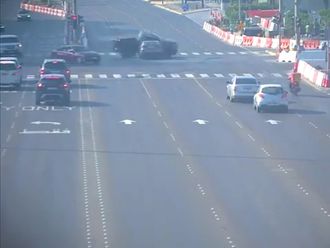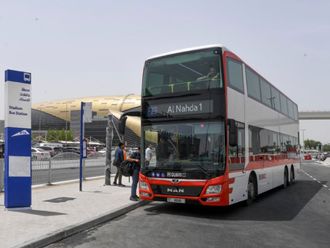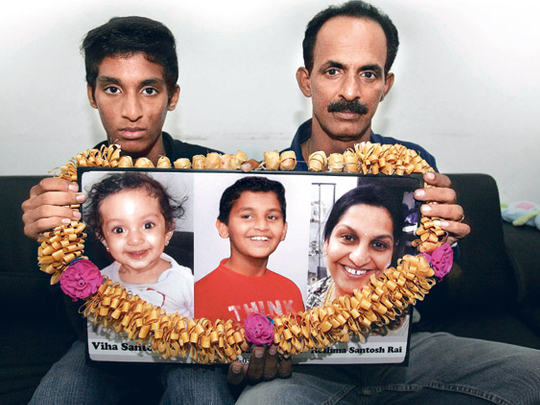
Dubai: Satish Shetty reached Mangalore on Tuesday. Santosh Rai will be flying to the city for the third time in four weeks on Saturday. And Abdul Rahman is stuck there for more than a month.
The agony of UAE-based relatives of the May 22 Air India Express crash victims is far from over. Struggling to pick up the pieces of their shattered lives, the next of kin of victims now find themselves sucked into the vortex of legal compulsions and bureaucratic red tape as they run from pillar to post to get succession certificates and other relevant papers critical for making settlements and claiming damages.
Relatives said extended leaves, frequent trips and phone calls to India to complete formalities are taking a toll on their lives.
Compensation confusion
Compounding their problems are conflicting reports over the compensation amount. Air India's insurers have reportedly hinted that the final compensation would be considered on a case-to-case basis with the Indian press quoting officials as saying that the liability of the airline at ‘100,000 Special Drawing Rights' - or $160,000 (Dh587,200) - as stipulated by the Montreal Convention 1999 is the upper limit and should not be thought of as the actual amount that will be awarded to each victim (see box).
All of this has prompted victims' relatives to rally together to fight for their cause. An executive committee of 17 members, representing 88 affected families, both from the UAE and India, met in Mangalore on Wednesday to initiate the registration of the Mangalore Air Crash Victims' Families Association.
Mohammad Beary, president of the association who lost his sister-in-law Zulekha in the crash, told XPRESS from Mangalore, "The association has been formed to address issues facing the victims' families."
He said the association would be calling a special general body meeting on July 11 to discuss the way forward. "All the 158 victims' families have been invited," he said, adding that the families may even meet federal ministers to get their grievances redressed.
The woes are many. Dubai-based Santosh Rai, who lost his wife Reshma, son Naland and eight-month-old daughter Viha in the accident, said he has had to make three trips to Mangalore just to get his paperwork in place.
"It is a long process and far from over," he said. The papers he has been running around for include police and autopsy reports, death certificates, family survival certificates and succession certificates, with each of these documents requiring several other papers, not to mention the task of getting required attestations in the Indian consulate in Dubai and the Ministry of External Affairs office in Mumbai.
He said he had to make three visits to the tehsildar's (district official) office in Mangalore only for the family survival certificate which states that his deceased family members are survived by him and 16-year-old son Milind. "The official concerned was busy the first two times," he said.
He will be applying for the succession certificate that identifies the legal heir next week. It will take at least six months to be issued, he said, adding it will be a while before he can settle bank accounts or claim the gratuity due to his wife who worked as a supervisor with Emirates NBD bank.
Appeal for help
A training co-ordinator with the state-owned company Emirates Aluminium, Rai said, "It will be nice if we can get some help in the UAE to complete some of the formalities. I cannot take undue advantage of my employer's kindness and keep going on leave to India."
Consul General of India in Dubai Sanjay Verma told XPRESS, "The families would need to contact us with comprehensive details of their complaints/issues for us to respond or liaise with concerned authorities."
Like Rai, UAE resident Abdul Rahman is also faced with a predicament. An operations manager with a Dubai-based shipping firm, he has barely had any time to mourn the loss of his wife Shahida and nine-year-old son Zeshan. Almost immediately after the tragedy, he flew to Mangalore. One month on, he's still stuck there.
"I have extended my leave as I am yet to complete the formalities," Abdul Rahman told XPRESS over the phone from Mangalore.
Seeking understanding
Abu Dhabi-based executive Satish Shetty who lost his wife Rama rushed to India on July 6 to complete paperwork. "I wish people would be more understanding towards us," he said.
Families said they would have to be in Mangalore in the next few days as salvaged baggage is being made available to claimants.
Compensation: Who will get how much
Air India may have been prompt in disbursing interim relief - Rs1 million (about Dh80,000) to the relatives of each crash victim and Rs500,000 (Dh40,000) for those under 12 - but it will be a while before the final dues are settled.
Sources said agents for the airline's insurers in Mangalore have reportedly told them that the final amounts due to each victim would be considered on a case-to-case basis. While an immediate comment was not available from Air India, the Indian press quoted official sources in the government as saying it would be too optimistic for the families to expect the insurers to pay compensation as laid down in the Montreal Convention 1999.
Aviation treaty
The Montreal Convention 1999 is an international treaty adopted by member states of the International Civil Aviation Organisation to fix liability and facilitate quick recovery of proven damages in the case of air disasters.
By fixing the upper limit of compensation at 100,000 Special Drawing Rights or $160,000 (Dh587,200) in case of death or injury sustained during an air accident, the convention re-established the need for uniformity of rules pertaining to the international movement of passengers and cargo.
With speculation rife on whether the victims' families would have to make do with compensation far less than stipulated, some NGOs have reportedly jumped into the fray in India to ostensibly help the victims' families get the full amount. The Indian press has reported that some of them have even sought cuts up to 30 per cent of the damages if their services are enlisted.




